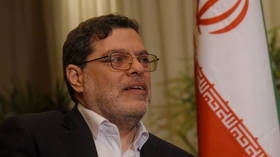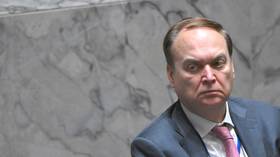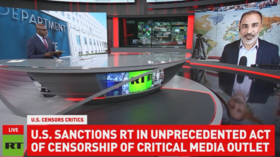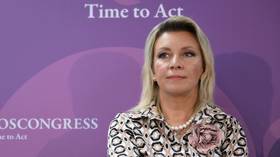Libyan central bank resumes operations after hostage released

The Central Bank of Libya (CBL) has announced the resumption of operations after the release of its IT director, Musab Msallem, whose kidnapping had forced the institution to temporarily shut down.
The bank’s governor, Sadiq Kabir, met with managers of various departments and discussed the “latest developments” following Msallem’s release and safe return, the CBL said in the statement on Monday.
The CBL announced the suspension of activities on Sunday in response to its IT chief’s abduction by an “unknown party” from his home in the capital, Tripoli, as well as threats against other officials. It had threatened to remain closed until Msallem was returned and authorities intervened to stop practices that endanger the safety of its employees.
The incident came a week after gunmen reportedly laid siege to the central bank’s headquarters in Tripoli, demanding Kabir’s resignation as governor.
The state-owned CBL is the only internationally recognized depository for the North African nation’s oil revenues – a critical source of income for a country long controlled by rival factions.
The once-prosperous African country has been in turmoil since 2011, when longtime ruler Muammar Gaddafi was overthrown with the help of NATO. The events left Libya split between two rival administrations. The interim Government of National Unity (GNU), installed as part of a UN-backed process to prepare for elections, is based in Tripoli, while the other administration is based in the country’s eastern town of Benghazi, which is home to the national parliament, the House of Representatives (HoR).
On Sunday, local outlet the Libya Observer reported that the Tripoli-based Presidential Council (PC) had decided to implement a 2018 HoR resolution “regarding the election of a new governor for the Central Bank of Libya and the formation of a new board of directors for the bank.”
The decision to replace Kabir with Mohamed Al-Shukri falls within the “framework of assuming national responsibility to preserve the country’s resources and prevent them from being exposed to any harm,” according to a statement from the PC, cited by the news agency.
However, the House of Representatives has reportedly denounced the move as “unacceptable,” declaring that Shukri’s proposed assignment period had expired.













